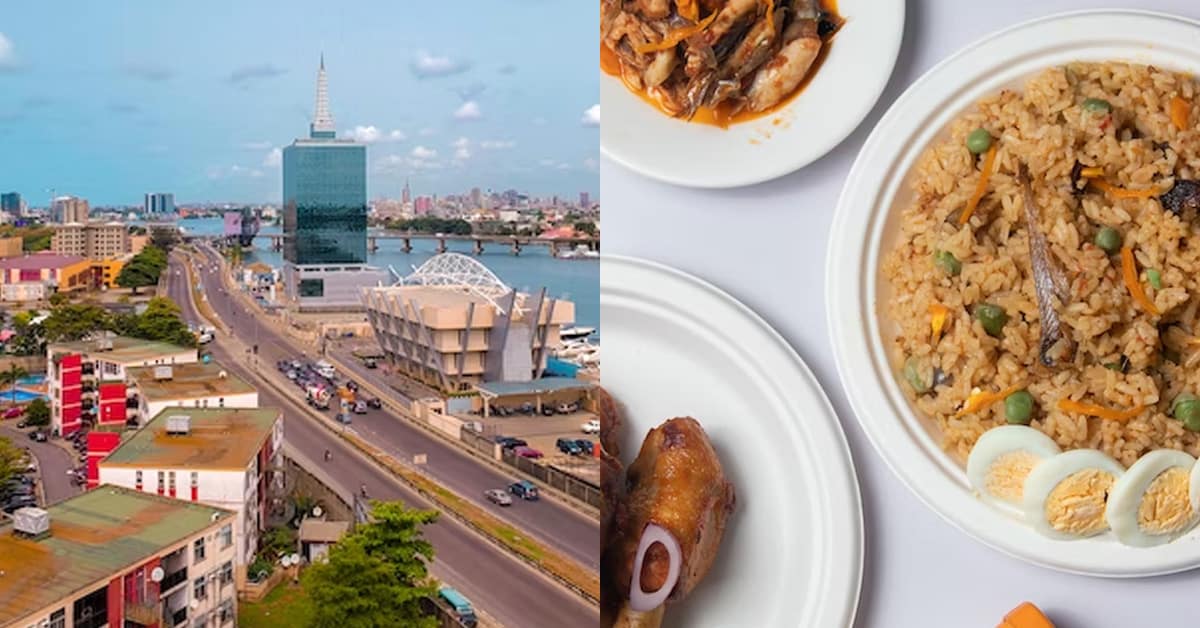Nigerian cuisine is a reflection of the country’s diverse cultural heritage and rich history. The food is a blend of indigenous ingredients, cooking techniques, and influences from the various ethnic groups that make up the country.
Nigerian cuisine is known for its bold flavors, vibrant colors, and use of spices and herbs. From the popular jollof rice to the spicy suya, Nigerian food is a delight to the taste buds.
Nigerian cuisine
Is Nigerian food halal?
Not all Nigerian food is halal as some dishes may contain non-halal ingredients such as pork or alcohol. However, there are many Nigerian dishes that are halal, such as jollof rice, suya, and moin moin, which are made with halal ingredients such as chicken, beef, or fish.
It is important to check the ingredients and preparation methods of each dish before consuming it to ensure that it is halal.
What kind of food do Nigerian eat?
Nigerian cuisine is diverse and varies depending on the region and ethnic group. However, some common Nigerian dishes include:
- Jollof rice – a popular rice dish cooked with tomatoes, onions, and spices.
- Egusi soup – a soup made with ground melon seeds and vegetables.
- Suya – a spicy grilled meat skewer.
- Pounded yam – a starchy dish made from yam that is pounded until smooth.
- Akara – deep-fried bean cakes.
- Moi moi – a steamed bean pudding.
- Efo riro – a vegetable soup made with spinach, tomatoes, and peppers.
- Fried rice – rice cooked with vegetables, meat, and spices.
- Pepper soup – a spicy soup made with meat or fish and spices.
- Chin chin – a crunchy snack made from flour, sugar, and spices.
How can you tell if the food is halal in Nigeria?
In Nigeria, halal food is typically labelled as such and may also display a halal certification mark from a recognised halal certification body. Some restaurants and food establishments may have halal signs or menus indicating that their food is prepared according to Islamic dietary laws.
It is always best to ask the restaurant or food vendor if their food is halal to ensure that it meets your dietary requirements.
Is it hard to find halal food in Nigeria?
It is not hard to find halal food in Nigeria. Nigeria has a significant Muslim population, and many restaurants and food vendors offer halal options.
Several halal certification bodies in Nigeria ensure the food is prepared according to Islamic dietary laws. However, finding halal food options may be challenging in some remote areas.
Is Nigerian food healthy?
Nigerian cuisine can be healthy if prepared with fresh ingredients and in moderation. Nigerian cuisine is rich in vegetables, fruits, and lean protein sources such as fish and chicken.
However, some Nigerian dishes, such as fried plantains and stews made with palm oil, can be high in calories, salt, and saturated fats. It is essential to balance the intake of these dishes with healthier options and to practice portion control.
What is Nigerian food similar to?
Nigerian food is similar to other West African cuisines, such as Ghanaian, Senegalese, and Cameroonian cuisine.
It also shares similarities with Caribbean and Southern American cuisine due to the influence of the African diaspora.
Steps to find halal food in Nigeria
Here are some tips to find halal food in Nigeria:
- Research halal food: Start by researching what halal food is and what it entails. This will help you understand what to look for when searching for halal food in Nigeria.
- Check for halal certification: Look for halal certification on food products or restaurants. This certification ensures that the food has been prepared according to Islamic dietary laws.
- Ask for recommendations: Ask friends, family, or colleagues who follow halal dietary laws for recommendations on where to find halal food in Nigeria.
- Use halal food apps: There are several halal food apps available that can help you find halal food in Nigeria. These apps provide information on halal restaurants, food products, and halal certification.
- Visit halal restaurants: Look for halal restaurants in your area and visit them to try out their food. You can also ask the restaurant staff about their halal certification and preparation methods.
- Check food labels: When shopping for food products, check the labels for halal certification. This will ensure that the food is prepared according to Islamic dietary laws.
- Attend halal food events: Attend halal food events in Nigeria to learn more about halal food and to try out different halal dishes.
- Join halal food groups: Join halal food groups on social media platforms to connect with other people who follow halal dietary laws and to get recommendations on where to find halal food in Nigeria.

